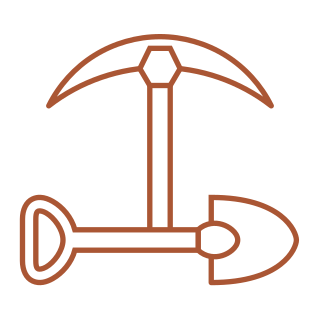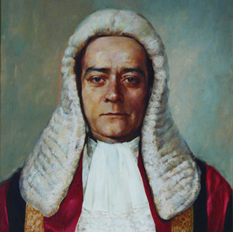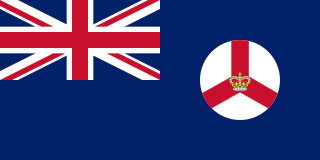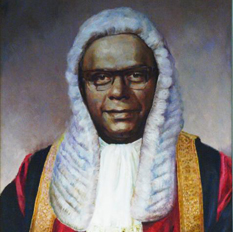
The International Maritime Organization is a specialised agency of the United Nations responsible for regulating shipping. The IMO was established following agreement at a UN conference held in Geneva in 1948 and the IMO came into existence ten years later, meeting for the first time in 1959. Headquartered in London, United Kingdom, the IMO currently has 174 member states and three associate members.

The Labour Front was a major left-wing political party in Singapore that operated from 1955 to 1965.

The Government of the Republic of Singapore is defined by the Constitution of the Republic of Singapore to mean the Executive branch of government, which is made up of the President and the Cabinet of Singapore. Although the President acts in his/her personal discretion in the exercise of certain functions as a check on the Cabinet and Parliament of Singapore, his/her role is largely ceremonial. It is the Cabinet, composed of the Prime Minister and other Ministers appointed on his/her advice by the President, that generally directs and controls the Government. The Cabinet is formed by the political party that gains a simple majority in each general election.

A referendum on the terms of integration into the Federation of Malaysia was held in Singapore on 1 September 1962. The idea for a referendum to be held was championed by then-Prime Minister Lee Kuan Yew of the People's Action Party (PAP). Opposition parties, notably the Barisan Sosialis (BS), were not satisfied with the framing of the referendum, as it did not allow voters the choice of rejecting the merger altogether. Despite such dissatisfaction, the referendum was carried out with three options being offered to voters.

Haji Omar Lim Yew Hock was a Singaporean and Malaysian politician of Chinese descent, who served as a Member of the Legislative Council and Assembly from 1948 to 1963, and the second Chief Minister of Singapore from 1956 to 1959.

General elections were held in Singapore on 21 September 1963. The elections saw the Malaysian ruling party, United Malays National Organisation (UMNO), backed with Singapore Alliance Party (SAP) in an attempt to oust the People's Action Party (PAP), after violating previous agreement not to do so and a highlight in the relations between UMNO and the PAP. However, the result was a victory for the PAP, which won 37 of the 51 seats in the Singapore Legislative Assembly. The 1963 election was the only election to date with no boundary changes to any of the 51 existing constituencies.

The Constitution of the Republic of Singapore is the supreme law of Singapore. A written constitution, the text which took effect on 9 August 1965 is derived from the Constitution of the State of Singapore 1963, provisions of the Federal Constitution of Malaysia made applicable to Singapore by the Republic of Singapore Independence Act 1965, and the Republic of Singapore Independence Act itself. The text of the Constitution is one of the legally binding sources of constitutional law in Singapore, the others being judicial interpretations of the Constitution, and certain other statutes. Non-binding sources are influences on constitutional law such as soft law, constitutional conventions, and public international law.

Edmund William Barker, was a politician and lawyer from Singapore.

The Colony of Singapore, or simply Singapore, was a British crown colony that existed from 1946 to 1963. When the Empire of Japan surrendered to the Allies at the end of World War II, Singapore was returned to the British in 1945. In 1946, the Straits Settlements were dissolved and together with Cocos-Keeling and Christmas Island, Singapore became a separate stand-alone crown colony with its own govenor. The colony was governed by the United Kingdom until it gained partial internal self-governance in 1955 before it was officially dissolved in 1963.

Singapore, officially the State of Singapore, was briefly one of the 14 states of Malaysia from 1963 to 1965. Malaysia was formed on 16 September 1963 by the merger of the Federation of Malaya with the former British colonies of North Borneo, Sarawak and Singapore. This marked the end of a 144-year British rule in Singapore which began with the founding of modern Singapore by Stamford Raffles in 1819.

The Protestant Church in Sabah or PCS is one of the four Lutheran World Federation member churches in Malaysia. It currently has 322 congregations nationwide in 21 parishes with a total of 32,000 baptised members, making the PCS the second largest of the four Lutheran body in the country. The PCS' membership is primarily made up of the indigenous peoples of Sabah. The current president of the Protestant Church in Sabah is the Rev. Jensey Mojuin.

The Alliance Party was a political coalition in Malaysia. The Alliance Party, whose membership comprised United Malays National Organisation (UMNO), Malaysian Chinese Association (MCA) and Malaysian Indian Congress (MIC), was formally registered as a political organisation on 30 October 1957. It was the ruling coalition of Malaya from 1957 to 1963, and Malaysia from 1963 to 1973. The coalition became the Barisan Nasional in 1973.
Merely a month before Singapore's separation from Malaysia and independence, UPP chief and sole Assembly Member Ong Eng Guan resigned his seat and retired from politics, precipitating a by-election.

Nguyễn Xuân Phúc is a Vietnamese politician currently serving as the Prime Minister of the Socialist Republic of Vietnam and is ranked 3rd in the country's 12th Politburo. Nguyễn Xuân Phúc is also a full member of the National Assembly, serving at its 11th, 12th, 13th and 14th terms. He was elected to the post by the National Assembly of Vietnam, nominated on 7 April 2016 by his predecessor, Nguyễn Tấn Dũng, who retired from office. Nguyễn Xuân Phúc became a member of the Communist Party of Vietnam on 12 November 1983.
Rochore was a constituency in Singapore that existed from 1951 until 1988. The constituency was represented in the Legislative Council from 1951 until 1955, in the Legislative Assembly from 1955 until 1965, and in Parliament from 1965 until 1988. It elected one member of Parliament.
The Republic of Singapore officially became the 117th member of the United Nations (UN) after its independence on August 9, 1965. From 2001 to 2002, Singapore held a rotational seat on the United Nations Security Council and has participated in UN peacekeeping/observer missions in Kuwait, Angola, Kenya, Cambodia and Timor Leste.
The 1st Parliament of Singapore was a meeting of the Parliament of Singapore. It commenced its first and only session on 8 December 1965 and was dissolved on 8 February 1968.

Arumugam Ponnu Rajah known also as A P Rajah, was Singapore's High Commissioner to UK and later Australia. He was Singapore's first Supreme Court judge to remain on the Bench after turning 70.

The 3rd Legislative Assembly of Singapore was a meeting of the Legislative Assembly of Singapore. Its first and only session started on 22 October 1963 and ended on 16 June 1965. The assembly was dissolved on 9 August 1965 and was succeeded by the 1st Parliament of Singapore.












